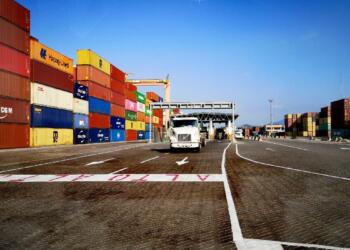
The daily operations of foreign companies established in Mexico are affected by the accelerated growth in vehicle imports and changes in foreign trade regulations, as explained by Nobuhiro Nakajima, general director of the Japan External Trade Organization (JETRO). in English) , the office that promotes Japanese trade around the world.
In an interview with T21, Nobuhiro Nakajima highlighted the challenges and opportunities faced by nearshoring in Mexico, an industrial trend in which Japanese companies established in the country face challenges and opportunities.
“Currently, Japanese companies in Mexico focus on manufacturing and are attentive to the review of the T-MEC in 2026, the presidential elections in the United States, and the tax policies around electric vehicles manufactured in Mexico,” explained the director of JETRO in the country.

Likewise, he explained that among the main concerns are the increase in land costs in several states and the poor distribution of electrical energy, which could influence the decision-making of new investors.
“One of Japan’s objectives is to achieve total decarbonization by 2050, and Mexico presents itself as a key partner in the production and use of clean energy, such as green hydrogen. However, to maximize the benefits of nearshoring, it is essential to solve problems such as the saturation of seaports and changes in foreign trade regulations, which affect the daily operations of companies,” Nakajima explained.
The director of JETRO Mexico indicated that the company helps others mitigate these challenges and support their adaptation to local conditions, with companies in the automotive sector being the most interested in establishing themselves in Mexico.
“For example, many Japanese companies in the automotive sector that carry out feasibility studies to establish themselves in Mexico, usually give priority to the availability of qualified labor, they are also interested in identifying possible suppliers located near the place where they plan to invest, a An important element to consider is the security of the area and its communication channels, as well as the proximity to housing, schools, among other elements,” said Nakajima.
In addition to the automotive industry, other Japanese industries, such as marine products processing , are interested in Mexico. Nakajima mentioned projects such as the processing and shucking of hotate (Japanese scallop) in Mexico , with the aim of exporting to the United States, one of the main markets for this product.
To this end, JETRO has visited companies in Ensenada that could carry out this process, demonstrating the diversification of the nearshoring projects that are being developed.
In that sense, Nakajima recommends Japanese companies interested in nearshoring explore the potential of the North American region, including Mexico, and visit the country to see it first-hand.
JETRO, established in 1958, has a clear mission: to support Japanese companies in their international expansion , facilitate open innovation through foreign investment in Japan, promote the export of Japanese products and contribute with studies and research that guide decisions. business.
With offices in Tokyo, Osaka, and 75 offices in 55 countries, including Mexico City, this office plays a determining role in the internationalization of Japanese companies.
Additionally, in Mexico, JETRO has developed a database of non-Japanese suppliers in the automotive sector and has made more than 600 diagnostic visits to suppliers, thus supporting the localization of the supply chain in North America since 2008.
It is worth remembering that Grupo T21 will hold the Transportation and Logistics Meeting (ETYL) on October 9 and 10 in the city of Monterrey, Nuevo León, in which the central topic of Maximizing logistics opportunities with nearshoring will be addressed . and where different leading figures will be present within this industrial trend that is happening in the country.
Comment and follow us on X: @karinaquintero / @GrupoT21















